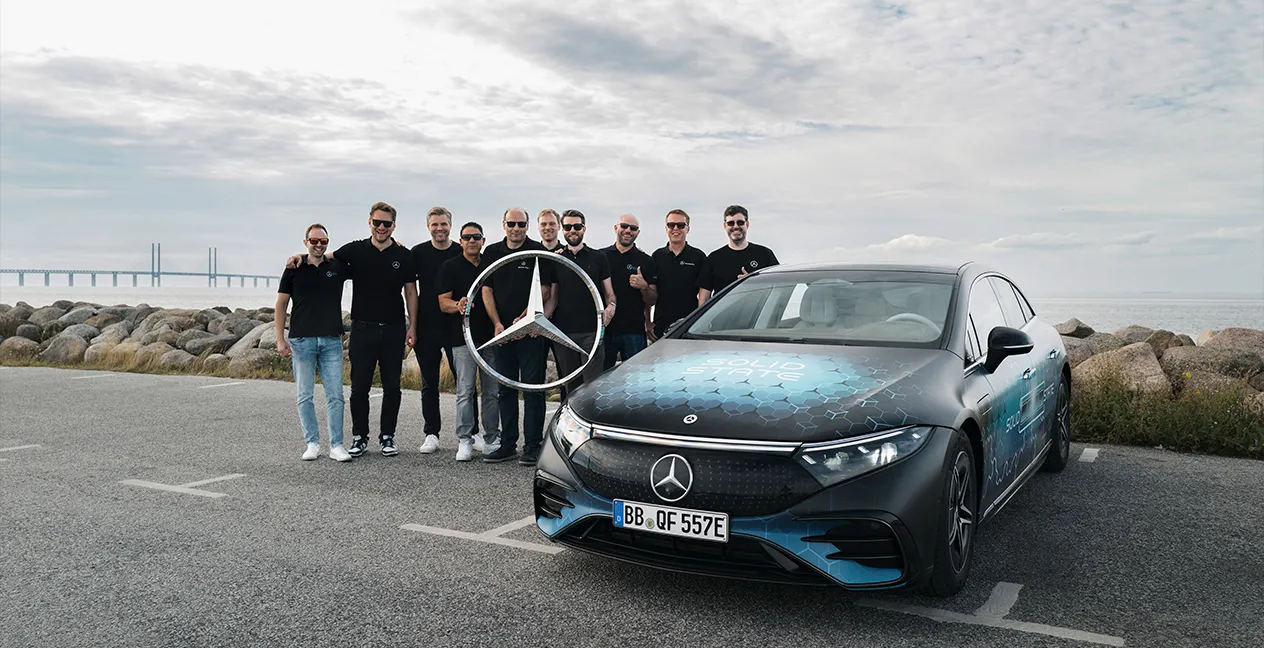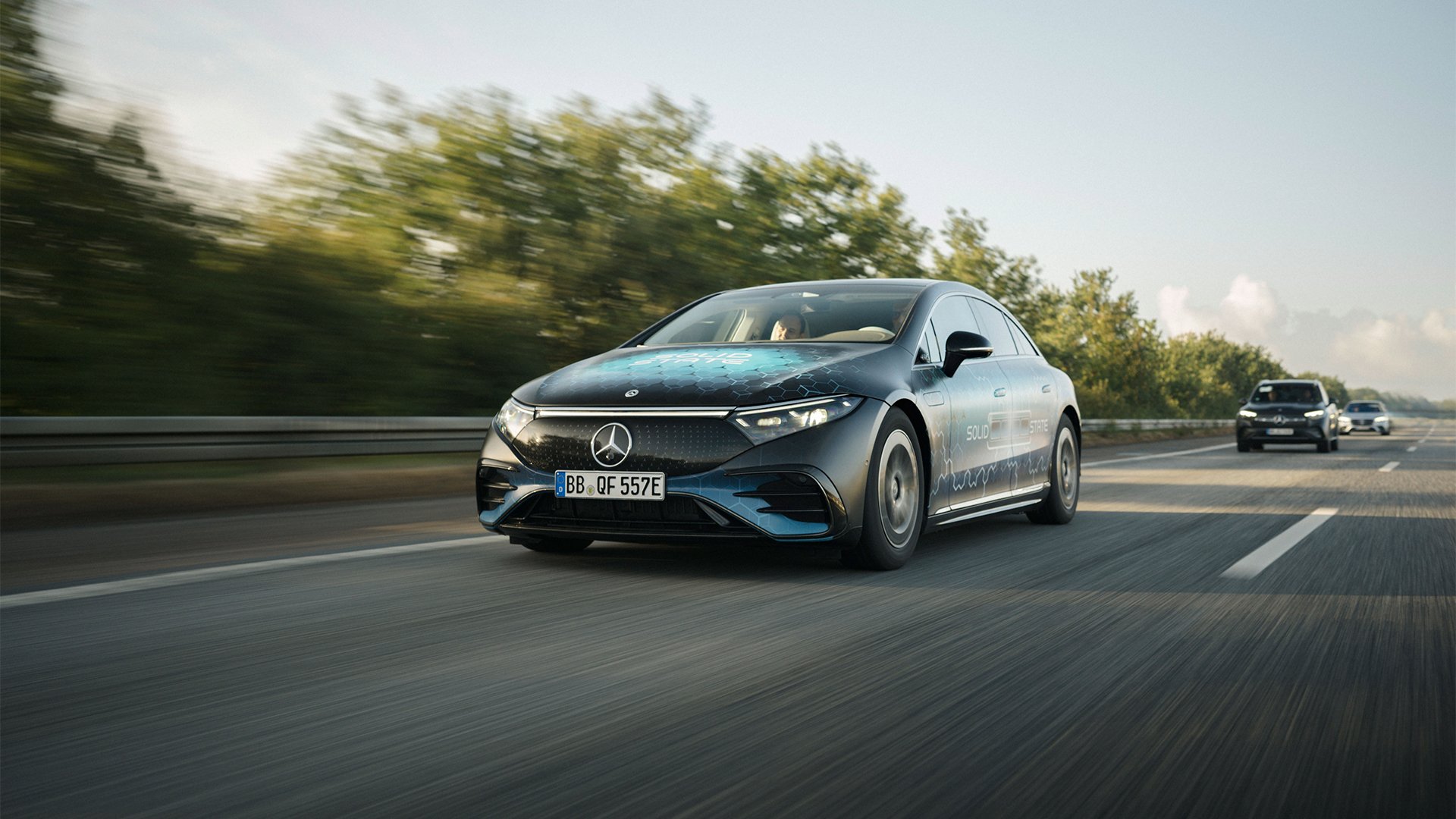
Created by Lucas Luís at Tuesday, 9 September 2025
Mercedes-Benz EQS traveled 1,205 km without stopping to charge
Mercedes-Benz has once again surprised the automotive sector by carrying out a long-distance test that marks a new chapter in electric mobility. An EQS, equipped with a lithium-metal solid-state battery, traveled 1,205 km between Stuttgart, Germany, and Malmö, Sweden, without any charging stops, still arriving with a residual range of 137 km.
This achievement surpasses the previous record set by the Vision EQXX on the Stuttgart–Silverstone route, exceeding it by three kilometers. More than just an impressive number, this milestone demonstrates that solid-state battery technology (a technology that uses solid rather than liquid electrolyte, offering greater range, higher safety, longer durability, and faster charging) is not only promising in the laboratory but is already proving its effectiveness in real road conditions.

Validation in real conditions
The trip was part of Mercedes-Benz’s testing program for the next generation of batteries, which combines digital simulations, trials in state-of-the-art facilities in Untertürkheim and Sindelfingen, and now also tests on public roads. The goal is to evaluate performance in different climates and route profiles, accelerating the path toward series production scheduled for the end of the decade.
The route followed the A7 and E20 highways, crossing Germany and Denmark before arriving in Sweden, on a journey calculated by Electric Intelligence technology, which took into account topography, traffic, and climate control needs, all without resorting to ferries.
Formula 1-inspired technology
The solid-state battery was developed in partnership with Mercedes-AMG High Performance Powertrains, the brand’s Formula 1 technology center, located in Brixworth, United Kingdom. The cells used were supplied by the American company Factorial Energy and are based on FEST® (Factorial Electrolyte System Technology).

To ensure durability, this battery is equipped with pneumatic actuators that adapt to cell volume variations during charge and discharge cycles, ensuring optimal operation over time. The result is a 25% increase in usable energy, while maintaining dimensions and weight similar to the conventional EQS battery, with greater efficiency thanks to passive air cooling.
According to Markus Schäfer, Member of the Board of Management of Mercedes-Benz Group AG and Chief Technology Officer, the goal is to bring this innovation to series production by the end of the decade, offering customers a new benchmark in range and comfort.
With this achievement, Mercedes-Benz reinforces its position as a leader in the development of electric mobility solutions, taking an important step towards a more sustainable and efficient future.
Source: Press Release Mercedes-Benz






